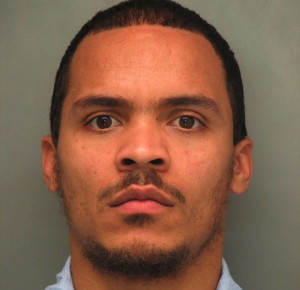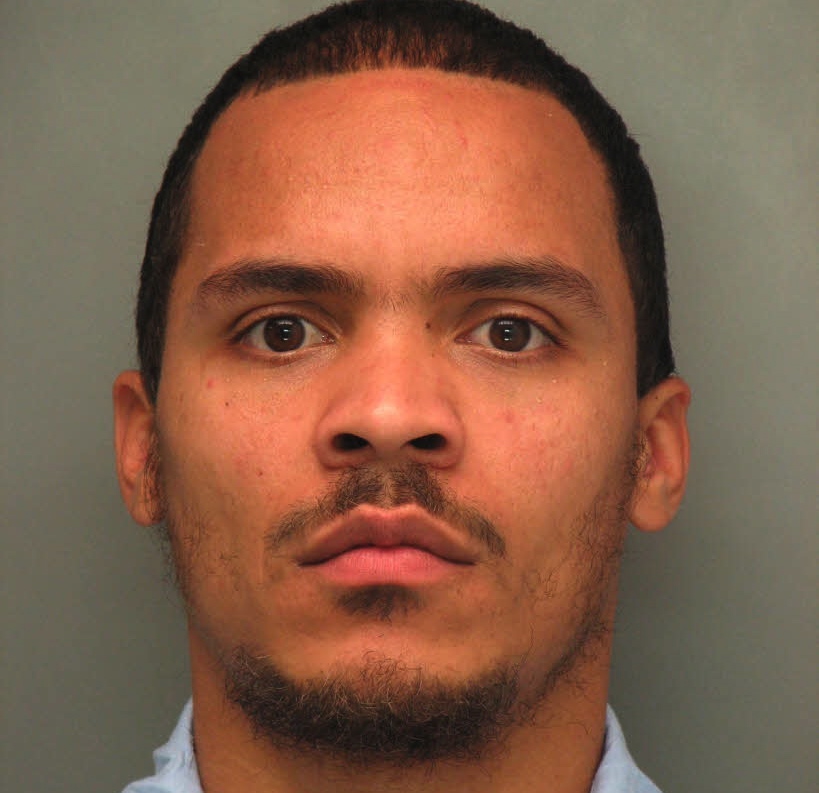Phila. man could receive death penalty for 2006 hit on Coatesville barber
By Kathleen Brady Shea, Managing Editor, The Times
After the jury in the capital murder case against Eric “Stroda” Coxry had been deliberating for nearly seven hours, Chester County Judge David F. Bortner dismissed it for the night a little after 7 p.m. on Thursday.
Coxry, 35, of Philadelphia, is one of four men charged in connection with the fatal shooting of Jonas L. “Sonny” Suber, 33, of Coatesville, on Oct. 21, 2006. Suber, who owned a Coatesville barbershop, was struck by eight bullets after he answered the front door of his home in the 400 block of Walnut Street about 9:15 a.m.
Before dismissing the jury, the judge explained that the panel of five men and seven women had asked to see three letters referenced during the four days of testimony; however, since only small segments of the letters had been admitted into evidence, they needed to be redacted. Bortner said a quick experiment with a black marker indicated that the redaction needed to be done on a computer, and he did not want the panel to have to wait, having already put in a long day.
Earlier on Thursday, the jury heard closing arguments from Coxry’s attorney, Brenda Jones, and Deputy District Attorney Ron Yen.
Yen said the evidence supported the fact that Duron “Gotti” Peoples, 35, had sought revenge against Suber because he had slept with Peoples’ girlfriend. Peoples directed Shamone “Kadof” Woods, 31, of Coatesville, to have Suber killed. In response, Woods hired Coxry to pull the trigger while Jeremiah “Young” Bush, 26, of Philadelphia, drove the getaway car, Yen said. Bush was convicted of first-degree murder in May and received a life sentence; Peoples and Woods are awaiting trial.
Multiple prosecution witnesses linked Coxry to the homicide. One of them, who said she passed Coxry leaving the murder scene and later picked him out of a photo lineup, had no ties to any of the participants, making her unbiased, Yen said.
Another witness, April Brown, who described herself as a longtime friend of the defendant, testified that she had followed Suber’s Cadillac the night before the murder at Coxry’s direction. The next day, she testified that she and Coxry were at a friend’s house when two men knocked at the door, prompting Coxry to hide in a closet. After he realized the men weren’t police officers, he came out, she testified.
Asked whether the subject of murder came up, Brown said Coxry told her “that he had to take him [Suber] out … it was either him or me.” She also testified that Coxry told her Woods paid Coxry for the hit. Pressed by Yen about whether she wanted to testify, Brown said she appeared only because she was subpoenaed. Minutes later, as she exited the courtroom, she wiped a tear from her face.
Jones argued that both women were tainted. The witness who allegedly saw Coxry exiting Suber’s house said he had green or hazel eyes, which is inaccurate and can’t be explained away because the sun was shining in his face, Jones said. She suggested the jury should dismiss Brown’s testimony because she admitted frequent drug use, which would have impaired her memory.
Other prosecution witnesses had similar baggage, Jones said. She cited the testimony of Suber’s wife, Bashera Grove, who didn’t pick Coxry out of a photo lineup until after she had misidentified Victor DeValia as the triggerman. During the trial, Grove attributed the mistake to her emotional state the day after the homicide, admitting that she knew DeValia had been with Peoples, whom she described as her husband’s only enemy.
Jones also disparaged the testimony of Clarence Milton, who acknowleged making a deal with federal prosecutors in exchange for his cooperation. “He may do 10 instead of life,” Jones said, calling the arrangement “a sweetheart deal.”
Finally, Jones argued that no forensic evidence, such as DNA or fingerprints, linked Coxry to the murder. “Mr. Coxry didn’t kill anybody,” she added. “He’s an innocent man.”
Yen countered that a hitman would likely make sure he didn’t leave evidence, and he said the witnesses independently corroborated each other. He also pointed to letters Coxry wrote from prison to Brown as well as his cousin. In them, Coxry expresses concern about what others might tell police. “If nobody don’t talk it’s going to get beat,” he wrote.
The letters turned out to be “better than a confession” because no one can suggest “anyone put words in his mouth,” Yen said. “There is no question that Mr. Suber was to be killed, and that Mr. Coxry was the one who was hired to do this.”
Bortner asked the jury to resume deliberations on Friday at 8:30 a.m. If the jury finds Coxry guilty of first-degree murder, the penalty phase will begin to determine whether he should be sentenced to death.







